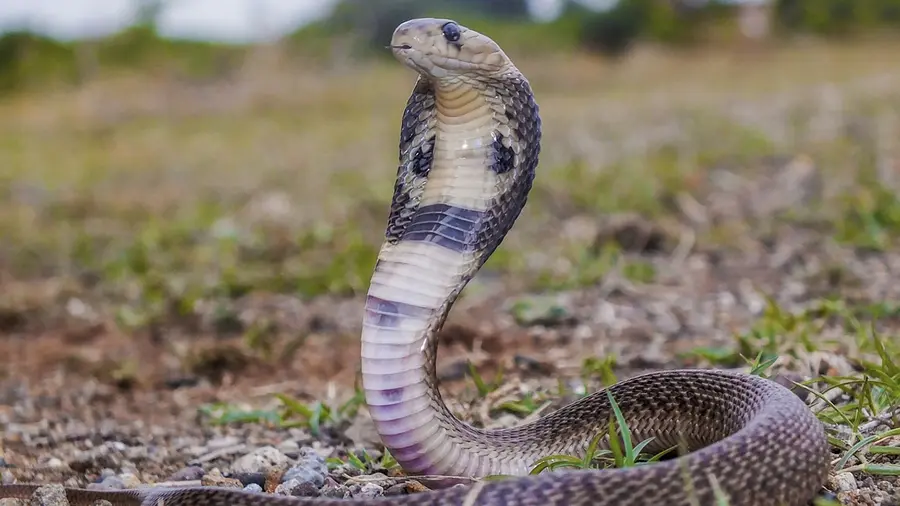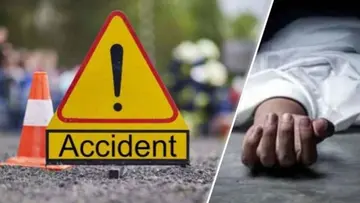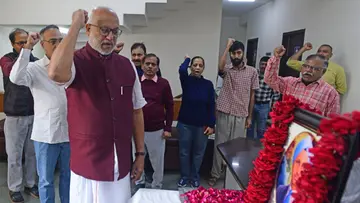Kerala
Kerala Launches Local Snake Antivenom Production to Achieve Zero Snakebite Deaths by 2030


Web desk
Published on Jul 17, 2025, 11:51 AM | 3 min read
Thiruvananthapuram: Kerala is set to begin the local production of snake antivenom in collaboration with the Health Department, Forest Minister A.K. Saseendran announced this during the World Snake Day observance on Wednesday, July 16, 2025. The initiative comes in response to long-standing concerns over the effectiveness of antivenom currently sourced from Tamil Nadu, which may not be fully effective in treating bites from snakes found in Kerala.
Scientific studies have shown that the potency and composition of snake venom can vary by region due to geographical and environmental factors. As a result, antivenom developed using venom from snakes in one area may not work as effectively in another. Kerala’s decision to produce antivenom locally is intended to address this gap and improve the clinical outcomes of snakebite treatment in the state.
The Minister noted that globally, snakebites account for between 82,000 and 1.35 lakh deaths annually, with nearly half of those deaths occurring in India. Kerala has historically reported high numbers of snakebite fatalities, but recent efforts by the Forest and Health Departments have led to a significant decline. In 2019, the state recorded 119 snakebite-related deaths. By 2024, that number had dropped to 30. In the current year, six deaths have been reported so far.
This reduction is attributed to increased availability of antivenom in all taluk hospitals and the implementation of awareness and rescue initiatives. The SARPA (Snake Awareness, Rescue and Protection App) mobile application, introduced by the Forest Department, has played a role in enabling quicker response and community-level intervention. A network of trained volunteers has also been deployed to assist with rescue operations and awareness efforts across the state.
As part of the broader “Snake Envenomation Zero Mortality Kerala” project, the state aims to eliminate snakebite deaths entirely by 2030. In support of this goal, intensive public education campaigns are being conducted under the Mission Sarpa initiative, and precautionary inspections were carried out in schools during the reopening period this year.
Currently, there are six antivenom production centers in India, all of which rely on venom collected from a single source—the Irula Tribal Cooperative Society in Tamil Nadu. Concerns have been raised about the suitability of this venom for producing antivenom that is effective across different regions, particularly given the documented variation in venom composition within the same species.
To address this, Kerala has initiated a project in partnership with the Evolutionary Venomics Lab at the Indian Institute of Science, Bengaluru, to develop region-specific antivenom. The initial focus will be on species for which current antivenom has limited efficacy, such as the hump-nosed pit viper and Malabar pit viper. At present, the nationally produced antivenoms are developed using venom from four species—the spectacled cobra, common krait, Russell’s viper, and saw-scaled viper. These do not provide adequate protection against bites from several native species found in Kerala.
The central government had earlier advised states to classify snakebite as a notifiable disease, but consistent data collection has been carried out only in Kerala. Despite this, the Centre has not moved forward with plans to expand venom collection or increase the diversity of antivenom production.
Saseendran stated that efforts are ongoing to establish a venom collection and antivenom production facility within Kerala, using venom sourced from local snake populations. If successful, this would allow the state to manufacture antivenom that is better suited to the specific venom profiles of snakes found in the region, potentially improving treatment outcomes and further reducing fatalities.










0 comments